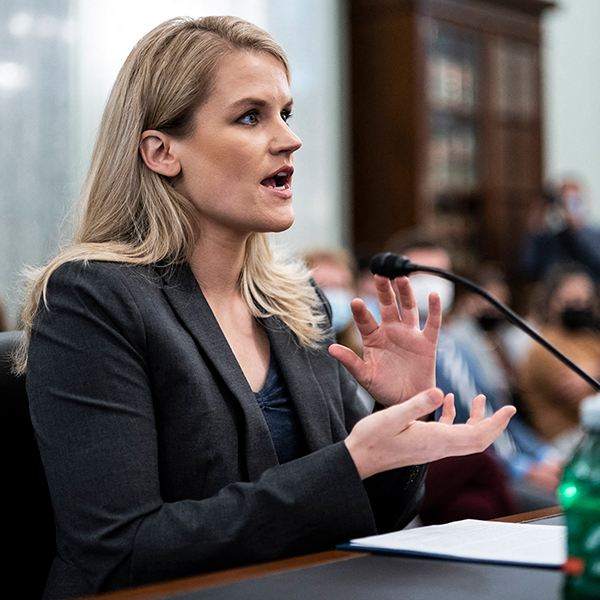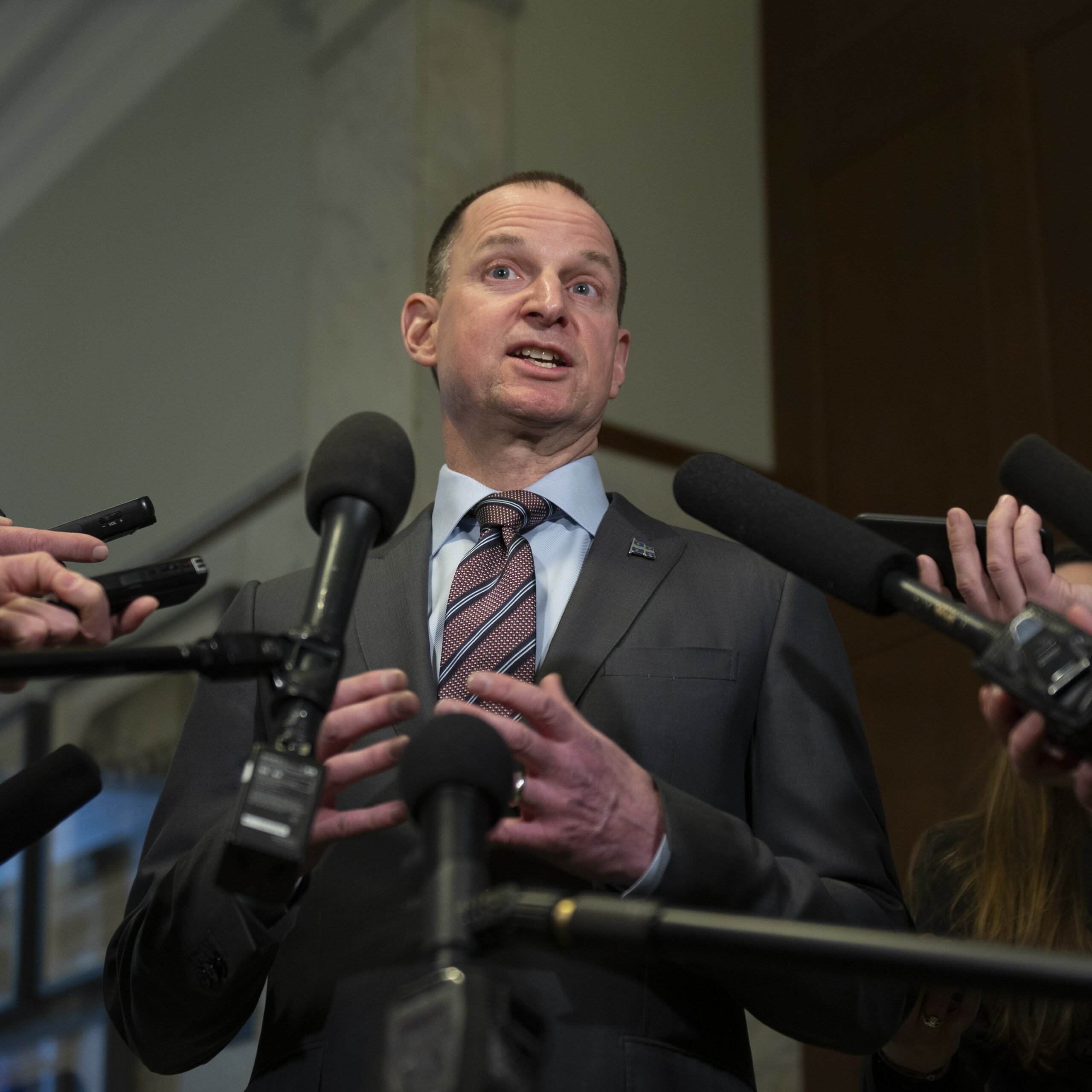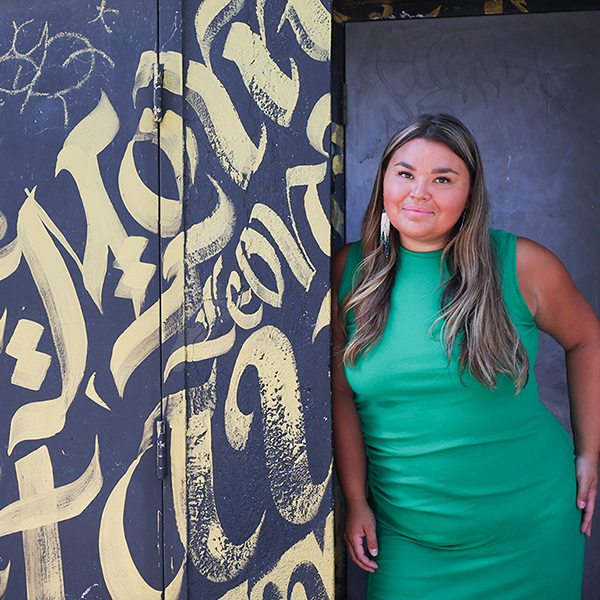Members of Justin Trudeau’s government acknowledge when speaking that they are on unceded Indigenous territory.
Marc Miller, BCL’01, LLB’01, named Canada’s new Indigenous services minister after the 2019 federal election, goes a step further.
The MP for Montreal’s Ville-Marie—Le Sud-Ouest—Île-des-Soeurs riding, adds a few words in Mohawk and other Indigenous languages as he travels across the country.
Miller is already perfectly at ease in French and English and fluent in Swedish, a language he learned accompanying his wife, former Swedish diplomat Elin Sandberg, on a three-year stint in Stockholm. (Sandberg now is a senior policy advisor at Global Affairs Canada.)
Miller made history in 2017 when he delivered a statement in the House of Commons in a fourth language he has been learning — Mohawk (it was the first time since Confederation that the language had been used in Parliament).
He decided to study Mohawk after he was first elected to Parliament in 2015. He was motivated, in part, by a desire to contribute to the reconciliation process, but he also wanted to prove a point to unilingual MPs — that it was possible to take the time to learn another language while also fulfilling their official duties.
“I do an hour a day. It’s a very, very rich, complex language,” Miller says. “It was at a time when my colleagues were learning French, and people who were French were learning English,” he recalls. “And I thought to myself, ‘Why can’t I learn an Indigenous language? ‘How hard can it be?’
“Turns out it’s exceedingly hard.”
Miller’s primary, secondary and CEGEP schooling, as well as his BA and MA in international relations at Université de Montréal, were all in French. “My dad is from Nova Scotia. My mother is from Montreal,” he says. “They wanted all their [three] children to be raised in French. This was before Bill 101.”
Miller’s family has deep McGill connections. His father, Carman Miller, taught Canadian history at McGill for 45 years and is a former dean of arts. His mother Pamela Gales Miller, BA’66, was the history of medicine librarian at McGill’s Osler Library. Her father, Lorne Gales, BA’32, BCL’35, LLD’79, headed the McGill Alumni Association, working there for 30 years.
Miller’s great grandmother Mary LeRossignol Dawson attended McGill for one year, while her daughter, Isabel Dawson Gales BA’33, BCL’36, was one of McGill’s first women law graduates. Barred from practising law in Quebec at that time, she worked as a paralegal.
It was in an advanced English class at Collège Jean-de-Brébeuf, that Miller first met Justin Trudeau, BA’94, in what was to become a life-long friendship and a lasting political partnership. “I think I lent him a pencil or something and we just hit it off from there,” Miller recalls.
The riding Miller represents includes the downtown campuses for both McGill and Concordia, as well as the École de technologie supérieure. The riding also includes a growing Indigenous population and Cabot Square, the focal point for Montreal’s troubled Inuit community.
“The reality we face as a nation is that you see an ever-growing number of Indigenous peoples outside reserve, off reserve, and particularly in urban centres, including Montreal, which is one of the most significant,” Miller says.
“It is something that we are conscious of as a government, we’re working toward addressing, but it has to be done in a way that engages the provincial government and municipal authority.”
The masters program he pursued at Université de Montréal touched on international law.
“I got interested by law, so halfway through my masters, I applied to McGill,” he explains.
Miller (who sat down for this interview at Chancellor Day Hall) appreciated the intimacy of McGill’s law faculty.
“It imagines itself, and I think it succeeds in doing it, as an academic and intellectual environment where you develop the skills to perform,” he says.
“It develops character, it develops work ethic and the rest is something that you really learn when you are in the law.”
Before entering politics, he practiced law at Stikeman Elliott, specializing in mergers and acquisitions. Asked how that legal experience influences his current work as a minister, Miller responds, “You quickly become results oriented, getting stuff done.”
His mandate letter from Prime Minister Trudeau sets a March 2021 deadline for Miller to end boil-water advisories in Indigenous communities.
And it calls for him, with other ministers, to address by 2030 critical needs including housing, all-weather roads, high-speed internet, and health facilities, treatment centres and schools in First Nations, Inuit and Métis communities.
A third priority is Bill C-92, a new law designed to give First Nations more control over youth protection services in their communities. (Some provinces, including Quebec, have raised jurisdictional concerns related to the bill.)
The estimated cost of righting the wrongs inflicted on Canada’s Indigenous peoples, and bringing their communities up to national standards, is $20 billion, Miller says.
“It is unacceptable in one of the most developed countries in the world that there are communities that have been on boil-water advisories for decades,” he says.
Native children make up a disproportionately high percentage of children in youth protection and were the first victims in the Sixties Scoop adoption scandal and in the residential schools that were created to assimilate them.
Further delay is not an option.
“That is what I call the cost of inaction, that is very real, very tangible and the courts of law have recognized such,” he said. “My job is to get kids back to their families.
“I’m laser-focused on outcomes,” Miller says.


